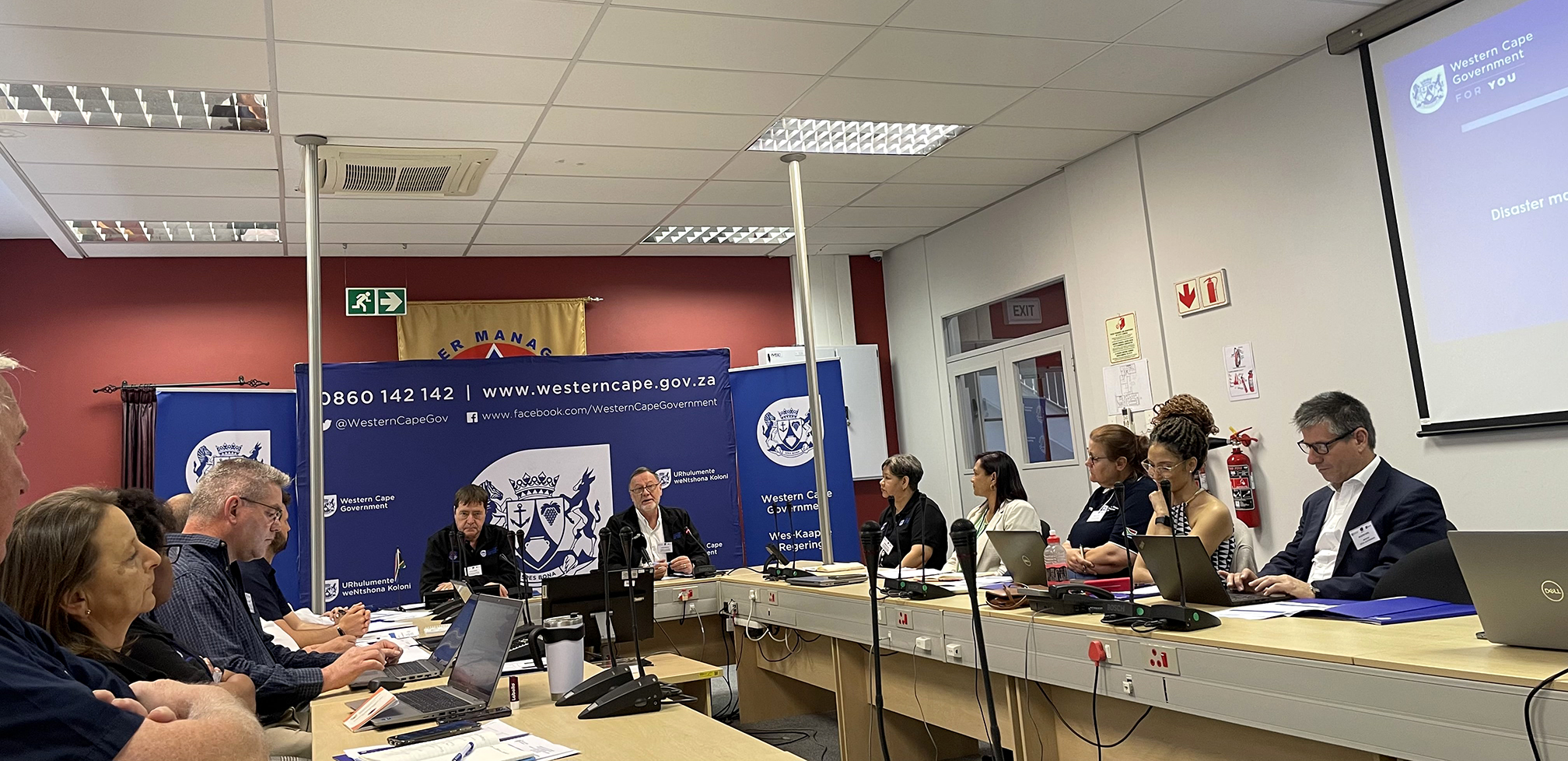“We have had eight disastrous events in eight months. That’s unheard of,” said Colin Diener, the Western Cape Disaster Management chief, at a media briefing at the Provincial Disaster Management Centre on Tuesday.
Disaster Management officials broke down the disasters and major events that hit the province over the past year. The recent flooding, droughts and wildfires devastated families and damaged infrastructure, schools, hospitals, roads and agriculture across the Western Cape.
Diener told Daily Maverick that they had a budgetary shortfall of about R6-billion after the disasters in 2023 and 2024.
“That’s huge. When I speak to my colleagues in KwaZulu-Natal and in the Free State, where they have had big fires and floods, their shortfalls are [also] running into billions. It’s a huge challenge,” said Diener.
According to Western Cape Disaster Management and Fire and Rescue Services, there was a financial shortfall of more than R704-million for the floods in May and June 2023 and a financial shortfall of R1.3-billion for the floods in September of that year.
There was a financial shortfall of R762-million for the June 2024 flooding, although the Western Cape Government is awaiting disaster classification for this from the National Disaster Management Centre (NDMC), which could see the allocation of funds.
There was a financial shortfall of R1.4-billion to deal with the damage caused by record rainfall in July 2024.
Read more: Cape of Storms
After a disaster, in terms of the Disaster Management Act, every government — municipal, provincial and national — must use a percentage of their funding to address the devastation, after which they can apply to the National Treasury through the NDMC for additional funding.
Diener said, “We don’t always get the exact amount because there have been other incidents in KwaZulu-Natal, the Free State and all over — the cake is only so big.”
Western Cape Disaster Management will appeal to the Provincial Treasury next week at a special medium-term planning meeting for additional resources to help it respond to the increasing severity of disasters.
“Disaster damages are huge. We’re going to have to look at it in a dedicated way because if you don’t build it better and more resilient, you’re going to suffer damage after damage,” said Diener.
Major disaster events
“Every single month up until August, we have dealt with an incident or a disaster... It’s just been continuous.”
The first major severe weather incident of 2023 was from 14-19 June when a series of cold fronts in the province resulted in two fatalities, communities being displaced and evacuations in the City of Cape Town and Cape Winelands.
The Wuppertal and Citrusdal communities were cut off, with thousands of people affected. Gift of the Givers provided nearly 22 tonnes of humanitarian aid, and there was extensive damage to infrastructure, particularly roads and agriculture.
From 7-10 April 2024, more severe weather was experienced, with disruptive rainfall and winds that caused localised flooding across the province and damaged the agriculture sector, Helderberg and Paarl hospitals, 224 schools and informal settlements in Cape Town and the Cape Winelands.
Severe storms again hit the province from 8-14 July and on 18 and 19 July. They caused damage in the City of Cape Town, mainly its informal settlements; the West Coast, in Cederberg, Citrusdal and Wuppertal; the Cape Winelands and Overberg; and the Garden Route and Central Karoo.
There were three fatalities — two in the Cape Winelands and one in Cape Town; flooding; evacuations and rescues; extensive road closures and accidents; electricity disruptions; damage to shipping vessels, schools and the agriculture sector; while a few clinics were closed temporarily.
What is a disaster?
A “disaster” is defined in South Africa’s Disaster Management Act 57 of 2002, as either a progressive or sudden and widespread or localised event that is either natural or human-caused.
The event must cause or threaten to cause:
- Death, injury, or disease;
- Damage to property, infrastructure, or the environment; and
- Significant disruption of the life of a community.
The impact must be of such magnitude that it exceeds the ability of those affected to cope with its effects using just their own resources.
“If you can manage the incident using your own resources then it’s not a disaster. Then if it goes across municipal or provincial boundaries, it’s a disaster. But the big thing around a disaster is if it exceeds your capability to manage it using your own resources,” said Diener.
Western Cape MEC for Local Government Anton Bredell said: “Our maintenance programme has fallen behind … so it’s important that we do get funding. The premier is pushing very hard for that … to climate-proof our province.” DM





